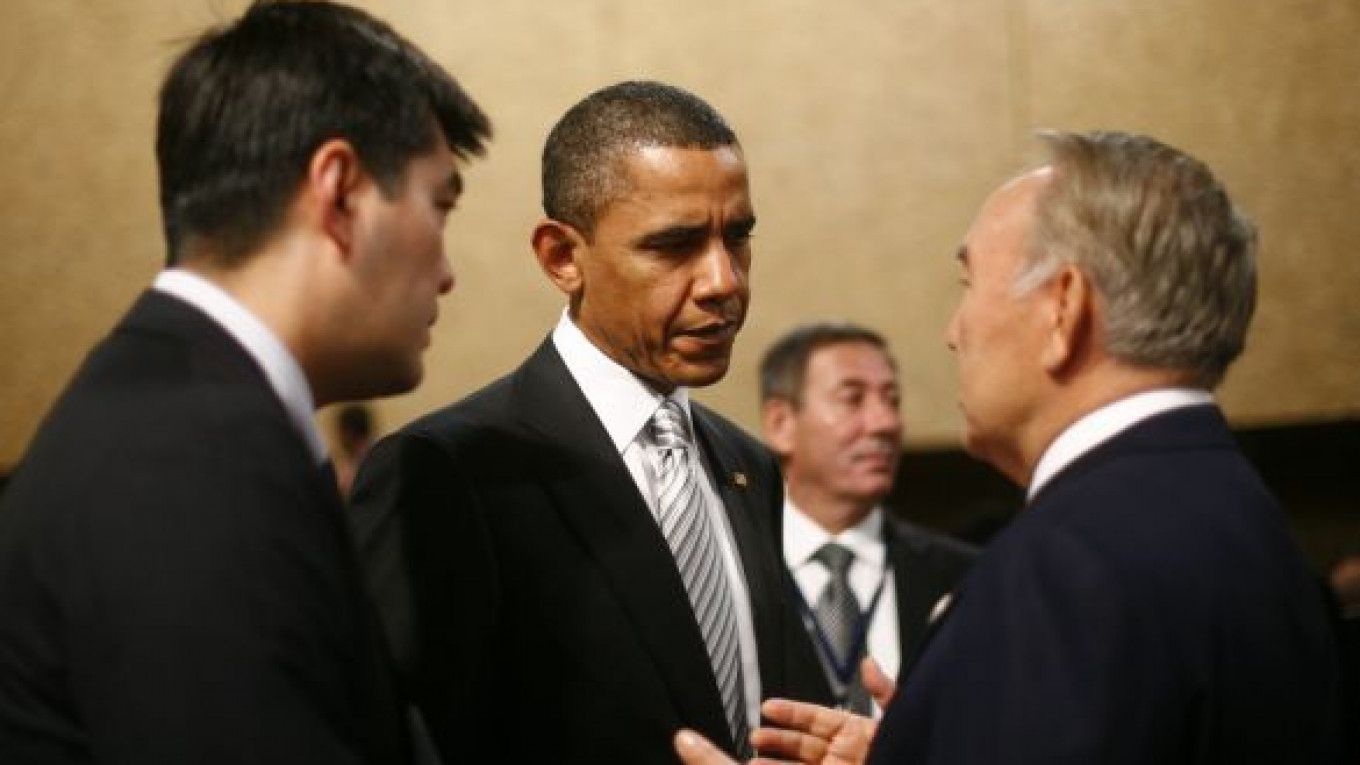ASTANA — Kazakhstan reiterated on Friday that it will revise production sharing agreements with foreign energy majors, shortly after accusing Italian Eni’s unit Agip of a $110 million fraud in the nation’s largest oil project, Kashagan.
Officials have long urged the government to review PSAs, saying energy deals with foreigners were signed in the chaotic post-Soviet years in the 1990s when cash-strapped Kazakhstan was more inclined to make concessions to lure foreign investors. Analysts say Kazakhstan — that like Russia and other resource-rich nations — is trying to be more assertive with foreign investors at a time of high oil prices.
“We should work out a mechanism … of reviewing production sharing agreements for their possible change, taking into account the balance of interests of all parties,” Altai Zeinelgabdin, a member of the Accounts Committee, told an economic conference.
The committee is Kazakhstan’s top financial control body, which supervises the implementation of the state budget.
“The economy is not standing still, the conditions of its development are changing, and this often demands the revision of PSAs, especially when state interests are violated,” Zeinelgabdin said. “We must state that many clauses of the PSAs in force do not correspond to present-day realities.”
Kazakh President Nursultan Nazarbayev has said foreign projects in key industries might lose their immunity from changes in tax legislation.
The head of the Tax Committee, Daulet Yergozhin, told reporters: “We are saying that the PSAs signed in the 1990s need certain clarifications and revisions.”
The officials gave no time frame or detail of possible changes.
Big projects in the Kazakh energy sector include the Kashagan consortium developing a huge oil field in the Caspian Sea, which is operated by Agip, and the Chevron-led Tengiz oil field.
A government official said earlier Friday that Kazakhstan suspects Agip of a $110 million fraud committed while operating the Kashagan project.
“A criminal investigation on fraud allegations is now being conducted,” Adil Abylkasymov, a department chief at Kazakhstan’s financial police, told the same conference.
Agip’s parent Eni declined to comment on the matter.
Some industry analysts have said that by charging foreign firms with various violations worth hundreds of millions of dollars the authorities want to increase Kazakhstan’s participation in some projects.
Abylkasymov said Agip had twice calculated the same costs of construction and installation works that it later intended to offset at the expense of oil and gas to be extracted from the Kashagan deposit.
The North Caspian Operating Company running the Kashagan project — the world’s largest discovery in 40 years — declined to comment immediately.
Kazakhstan is drafting a law that will set prison terms for executives at oil and gas companies that harm the environment, Environmental Protection Minister Nurgali Ashimov said Friday, Interfax reported.
(Bloomberg)
A Message from The Moscow Times:
Dear readers,
We are facing unprecedented challenges. Russia's Prosecutor General's Office has designated The Moscow Times as an "undesirable" organization, criminalizing our work and putting our staff at risk of prosecution. This follows our earlier unjust labeling as a "foreign agent."
These actions are direct attempts to silence independent journalism in Russia. The authorities claim our work "discredits the decisions of the Russian leadership." We see things differently: we strive to provide accurate, unbiased reporting on Russia.
We, the journalists of The Moscow Times, refuse to be silenced. But to continue our work, we need your help.
Your support, no matter how small, makes a world of difference. If you can, please support us monthly starting from just $2. It's quick to set up, and every contribution makes a significant impact.
By supporting The Moscow Times, you're defending open, independent journalism in the face of repression. Thank you for standing with us.
Remind me later.






